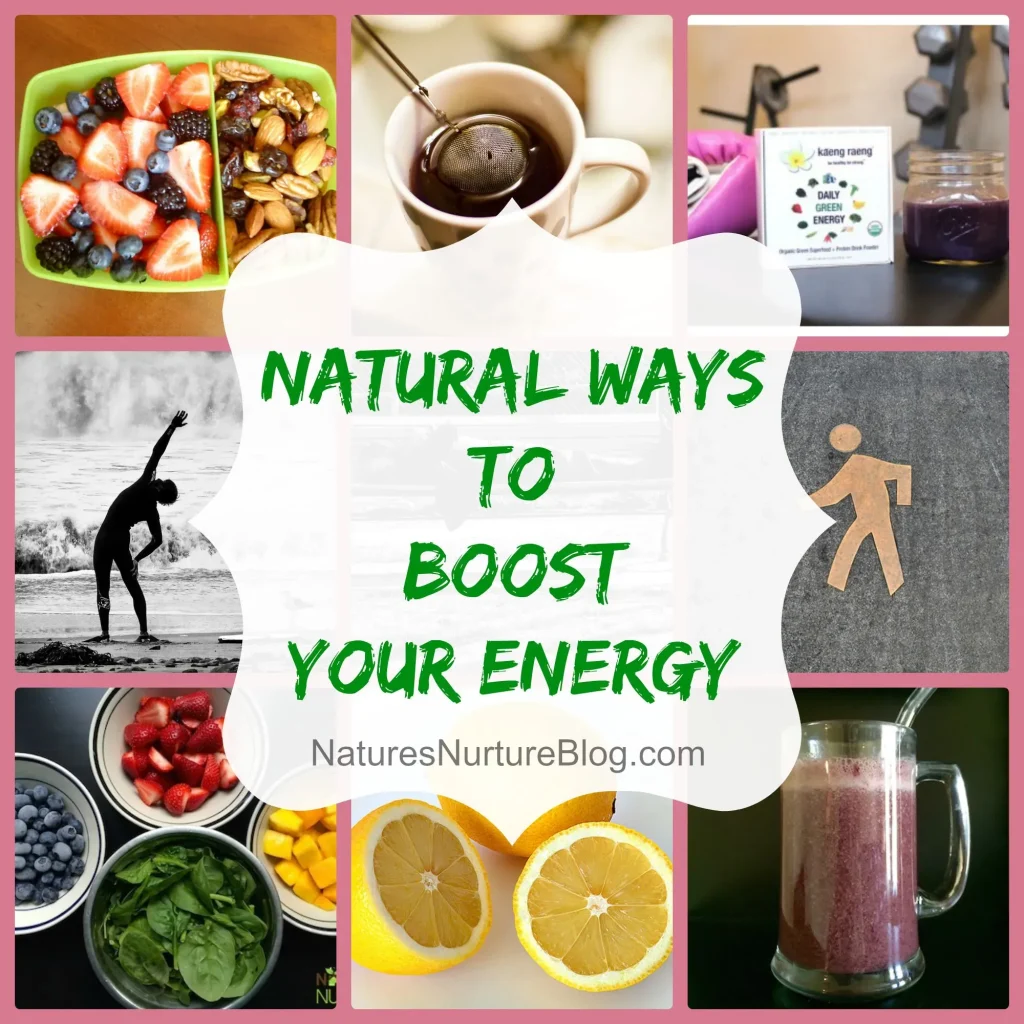Boost energy naturally is more doable than a magic pill, rooted in daily choices and evidence-based practices you can start today. From quality sleep to smart nutrition, this guide highlights science-backed energy tips that help you feel more alert, focused, and resilient. By prioritizing foods that boost energy, staying hydrated, and pacing meals, you can increase energy naturally and avoid the mid-afternoon crashes. These practical habits to boost energy, including natural energy boosters, are grounded in research and adaptable to busy schedules. Read on to discover simple steps—rooted in real science—that you can weave into daily life for longer-lasting vitality.
Think of sustained vitality as the result of consistent daily patterns rather than a single fix. The topic can be framed around longer-lasting energy, improved cognitive function, and steadier mood through balanced meals, hydration, movement, and smart light exposure. This LSI-inspired approach uses related terms like circadian-friendly routines, energy metabolism, and stress resilience to broaden the search context. By connecting sleep quality, physical activity, and nutrient-dense foods with everyday outcomes, you lay a broader foundation for readers seeking comprehensive energy strategies.
Boost Energy Naturally with Science-Backed Habits and Natural Energy Boosters
Energy isn’t just about waking up; it’s about how your body produces and uses energy throughout the day. The science supports repeatable practices—quality sleep, steady hydration, light exposure, and regular movement—as natural energy boosters. When you embrace these science-backed energy tips, you create a foundation that helps you boost energy naturally without quick fixes.
To put this into practice, focus on habits that sustain energy. Aim for a consistent sleep schedule of 7–9 hours, incorporate bright light in the morning, and schedule short movement breaks every hour. Pair these with simple stress-management techniques like 5–10 minutes of deep breathing or mindfulness. These practical steps are true habits to boost energy and, taken together, act as durable, science-backed energy tips that keep you alert and motivated throughout the day.
Nutrition for Lasting Power: Increase Energy Naturally with Foods That Boost Energy
What you eat directly supports energy production at the cellular level. Focus on meals that balance protein, complex carbohydrates, and healthy fats to stabilize blood sugar and sustain energy. Include iron-, B12-, and folate-rich foods for oxygen transport, and add magnesium and potassium to support muscle function and nerve signaling. This nutrient-dense approach helps you increase energy naturally and leverages foods that boost energy as a core strategy.
In practice, build meals around lean proteins (fish, poultry, legumes), leafy greens, whole grains, seeds, and nuts. These foods that boost energy work best when paired with fiber and healthy fats to slow digestion and prevent energy crashes. Keep hydration in mind, limit added sugars, and view nutrition as part of a broader set of habits to boost energy—an ongoing, nutrition-powered path to steady daily vitality.
Frequently Asked Questions
What are science-backed energy tips to boost energy naturally?
These science-backed energy tips are designed to help you increase energy naturally. Prioritize sleep quality (7–9 hours) and a consistent schedule, stay hydrated, and eat balanced meals with protein, complex carbohydrates, and healthy fats. Include regular movement and daytime light exposure to support circadian rhythm, and use caffeine strategically if needed.
Which foods that boost energy should I include to increase energy naturally?
Focus on foods that boost energy by choosing nutrient-dense options that support energy metabolism. Include lean proteins, leafy greens, whole grains, legumes, seeds, and fortified cereals rich in iron, vitamin B12, folate, magnesium, and potassium. Pair meals with protein and fiber to blunt blood sugar spikes and sustain energy, helping you increase energy naturally.
| Topic | Key Points | Practical Steps |
|---|---|---|
| Introduction | Energy affects productivity, mood, immune function, and overall quality of life. Sustainable energy comes from science-backed habits and simple lifestyle tweaks; you can boost energy naturally by using practical steps from the guide. | Follow the 10 science-backed tips and start today with one or two habits. |
| Tip 1 — Sleep Quality and Consistency | Quality sleep is the foundation of daily energy. 7–9 hours, consistent schedule; wind-down routine; cool/dark/quiet bedroom; limit caffeine after early afternoon. | Set a fixed bedtime; establish a wind-down routine; dim lights; avoid screens; optimize sleep environment. |
| Tip 2 — Hydration & Electrolyte Balance | Hydration affects cognitive and physical performance. Aim for about 2–3 liters per day; electrolytes during exercise. | Drink water consistently; use electrolyte drinks when active; adjust intake for climate and activity. |
| Tip 3 — Balanced Meals (Protein, Complex Carbs, Healthy Fats) | Meals with protein, complex carbs, and healthy fats stabilize blood sugar and sustain energy. | Build meals with a protein source, complex carbs, and healthy fats; include vegetables; eat every 3–4 hours; pair carbs with protein for steadier energy. |
| Tip 4 — Smart Caffeine Use & Herbal Alternatives | Caffeine provides a mindful boost; avoid late-day caffeine; green tea offers a gentler lift; consider adaptogenic herbs. | Limit caffeine to morning; avoid late afternoon; try green tea; consider adaptogens (ashwagandha, rhodiola) with guidance; stay hydrated. |
| Tip 5 — Move More with Short, Intentional Bursts | Short bursts improve mood, endurance, and mental clarity; stand or move hourly. | Do 5–10 minute brisk walks or quick bodyweight circuits; set hourly reminders to stand or stretch. |
| Tip 6 — Light Exposure & Circadian Rhythm Alignment | Natural light helps regulate the internal clock and energy cycles. | Get outside or near a bright window within 1 hour of waking; take an outdoor break in the afternoon; consider a morning light-therapy lamp. |
| Tip 7 — Stress Management & Breathwork | Chronic stress drains energy; 5–10 minutes of breathing or mindfulness can restore energy. | Practice daily 5–10 minutes of deep breathing or box breathing; use quick midday resets; incorporate mindfulness. |
| Tip 8 — Nutrient-Rich Foods for Energy Production | Iron, B12, folate support oxygen transport; magnesium and potassium support muscle and nerve function. | Eat iron-rich foods, B12 sources, folate, magnesium, potassium; include lean meats, seafood, legumes, greens, whole grains, seeds; check Vitamin D status. |
| Tip 9 — Limit Added Sugars & Optimize Fiber | Sugars can cause energy crashes; fiber promotes steady digestion and energy; pair fiber with protein/fats. | Choose whole foods; read nutrition labels; snack with protein, fiber, and healthy fats. |
| Tip 10 — Consistent Routine & Healthy Habits | A predictable routine reduces decision fatigue and supports stable energy. | Set regular wake/sleep times; plan meals and hydration; schedule movement and breaks; create daily rituals around sunlight and meals. |
Summary
(No result paragraph in this structure)



